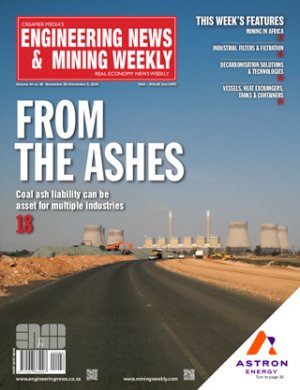On Workers Day, the Labour Court ordered the chief mining inspector to exercise his powers under the 1996 Mine Health and Safety Act (MHSA) as easing of the Covid-19 lockdown regulations allows more mining employees to return to work. Specifically, the court instructed the chief mining inspector to publish a notice in the Government Gazette by no later than May 18 requiring mining employers to prepare and implement codes of practice detailing how they intend mitigating the effects of the Covid-19 outbreak on the health and safety of employees and persons who may be directly affected by the disease at the mine, and issuing guidelines for this purpose. This order has been touted as a significant win for the Association of Mineworkers and Construction Union (AMCU), which filed the case in mid-April. Although AMCU’s position on the substantive legal point prevailed, the court refused the union’s request for a costs order against the mining authorities.
AMCU disputed the chief mining inspector’s refusal to invoke his MHSA powers and his underlying rationale – that Covid-19 was a public health, rather than an occupational health, issue and was therefore best managed by guidelines and directives issued under the Disaster Management Act (DMA) and its regulations. By the end of April, these already included directives issued by the chief mining inspector in March, directions published by Mineral Resources and Energy Minister Gwede Mantashe at the end of April and a ten-point plan for a Covid-19 Standard Operating Procedure put forward by Minerals Council South Africa.
But guidelines and mandatory codes of practice under the MHSA carry more clout, as they are associated with powers of oversight, review and enforcement. For example, MHSA codes of practice must be filed with the chief mining inspector, and an inspector may at any time instruct an employer to review a code if it fails to comply with a guideline, or if it is deemed inadequate to protect the health and safety of employees. Failure to comply is a criminal offence.
The Labour Court agreed with AMCU that measures under the DMA were inadequate to ensure the safety of returning mineworkers and the communities in which they reside, and found that the chief mining inspector’s refusal to use the MHSA was unreasonable. The authorities’ argument that Covid-19 was not an occupational health issue could not be sustained, because the intersection of other occupational, communicable and noncommunicable diseases in the mining context and the operational conditions on the mines rendered mineworkers and mining communities particularly vulnerable to the spread of Covid-19. The profound implications of the Covid-19 pandemic for the country and neighbouring countries, the weight of medical opinion standing behind more stringent measures, and the fact that the Minerals Council supported the use of the MHSA further underscored the unreasonableness of the chief mining inspector’s position.
On the basis of its success on this point, AMCU asked the court to order the Minister and the chief mining inspector to pay its costs, including the costs of five respected medical experts who had supported the union’s case. The mining authorities disavowed any liability for costs.
The general principle that costs follow the result does not apply to matters heard in the Labour Court. Instead, ‘law and fairness’ must govern the court’s decision to make a costs order (in accordance with the Labour Relations Act, 1995). AMCU nevertheless argued that law and fairness dictated a costs award in its favour. It also invoked one of the costs principles originally set out in the Biowatch case, which is that, in constitutional litigation between a private party and the State, the State is liable for costs if the private party is successful. However, the court pointed out that the basis on which the case had been decided did not invoke its constitutional jurisdiction.
The court’s decision that each party should bear its own costs ultimately rested on three considerations. Firstly, on the conduct of the parties, the court found no grounds for AMCU’s contention that the mining authorities were frivolous or vexatious in opposing the proceedings, or that they had abdicated responsibility for mineworker safety and acted only in the interests of mining companies. The judge dismissed AMCU’s claim that it had been rebuffed and ignored in the consultation process in what has been a fast-moving and pressured policy environment. Secondly, but for the question of the reasonableness of the chief mining inspector’s decision, the order granted was largely a product of consensus between the parties. Thirdly, and most interestingly, the judge found that an adverse costs order might “sour” future and ongoing engagement by the mining authorities with social partners and the representatives of mining communities. This is a novel line of reasoning, because the idea that an adverse costs order might sour an ongoing relationship has only been applied in the context of collective bargaining parties, not to a tripartite relationship that includes the State.
AMCU may well appeal this aspect of the judgment (should social actors be worried about ‘souring’ a relationship with the State). But, in the meantime, it must be satisfied that its Covid-19 safety win comes at a cost.
Edited by: Martin Zhuwakinyu
Creamer Media Senior Deputy Editor
EMAIL THIS ARTICLE SAVE THIS ARTICLE
ARTICLE ENQUIRY
To subscribe email subscriptions@creamermedia.co.za or click here
To advertise email advertising@creamermedia.co.za or click here










